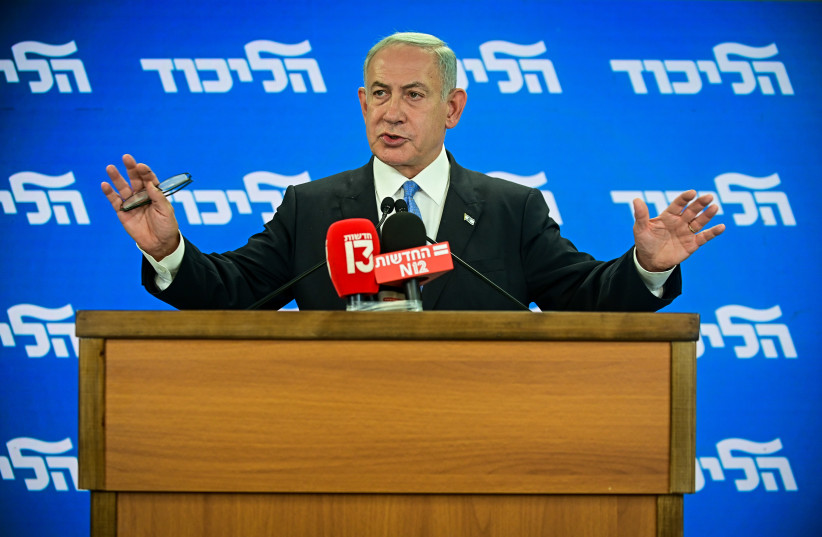The plot thickens. After Israel’s offshore gas produced big export deals with Egypt and Jordan, the diplomatic momentum now reaches Lebanon’s shores.
The Lebanese situation, however, is entirely different. Diplomatically, there is no peace between Beirut and Jerusalem, and that’s an understatement, and commercially, the deal at stake is not about gas delivery but about gas mining.
That is why the talks, in which Israel and Lebanon negotiated through American mediators, were mainly about the demarcation of the maritime border between the two enemies, and the mapping of their respective economic waters.
As of this writing, the details of the deal have yet to be made public, but Israel reportedly made some concessions in order to enable Lebanese drilling at the Kana field, some 5 kilometers north of Israel’s Karish field, which would remain fully Israeli, despite earlier Lebanese claims.
These reports sufficed for leaders from both sides to emerge with manipulative statements and also downright lies, all of which miss this affair’s big picture, which is not about Israel, Lebanon, or the gas deposits wedged between them, but about America’s renewed centrality in the Middle East after a decade-long retreat.

The deal's main critic: Benjamin Netanyahu
THE DEAL’S main Israeli critic is opposition leader Benjamin Netanyahu, who charged Prime Minister Yair Lapid with violating Israeli sovereignty and also with having opposed the very mining of Israel’s gas fields.
Both statements are unfounded. The field at stake is not in Israel’s territorial waters but in the economic waters which sprawl to their west. Economic waters are the maritime swath that a country can mine, but is not part of its jurisdiction. Similarly, Lapid never said anything against mining Israel’s gas, and in fact was Netanyahu’s finance minister when they jointly set out to do just that.
In typical cynicism, Netanyahu took out of context a sentence Lapid said about the risks involved in economic dependence on natural resources, a well-known syndrome called the Dutch disease. Alluding to what happened to Holland after it found gas in the 1960s, it refers to a sudden influx of cash that fans inflation, spikes labor costs and, ultimately, raises unemployment.
In Israel’s case there is the added concern that mining’s easy money would erode the spirit of inventiveness that has been the engine of its economic miracle. That’s what Lapid discussed.
The Dutch disease concern was not unique to Lapid. It was shared by former Bank of Israel governor Stanley Fischer, who preempted the syndrome’s damage by creating the sovereign fund that Netanyahu made law, and which makes the government’s gas royalties trickle into the economy slowly, steadily and for social purposes, rather than suddenly, erratically and for the sake of any political whim.
This is what Lapid was concerned about, not the mining itself, which he favored and indeed helped facilitate. In fact, there is no economic difference between Lapid and Netanyahu, who would clearly prefer as his main rival not a free-market champion but a socialist from Labor.
Still, Netanyahu’s lies were picked up by Hezbollah’s propaganda machine, which used them for its expectable bravado that it forced the Lebanese government to twist Israel’s arm into major concessions. Following up on Hezbollah’s tone, Christian politician Elias Bou Saab said Lebanon would pay Israel “not one cent of royalties,” if and when Lebanon will extract gas from under its sea.
So, yes, there is a lot of commotion surrounding what may soon emerge as a deal between the Jewish state and a government that lives in the shadow of Hassan Nasrallah, all of which explains why attention is focused on the deal’s two parties and what is happening between them.
Well, don’t get too excited. Lebanon’s leaders will remain Iran’s hostages even after they mine gas, and the fortune they hope to retrieve from under the sea will not undo their mixture of ineptitude, cowardice and corruption.
Where this deal matters is therefore not in its diplomatic parties and commercial details, but in their American patronage, and even more so in those conspicuously missing from the deal – Russia and Iran.
THE MIDDLE EAST was a major arena in Cold War I since 1955, when Moscow began arming Israel’s enemies while Israel relied on Western arms. This alignment lasted until the mid-1970s.
Egypt’s defection from Moscow’s tutelage to Washington’s – a stroke of diplomatic genius on the part of Anwar Sadat – redrew the Middle East as an American dominion with anti-Western islands. Uncle Sam’s dominance was bolstered by a succession of American-sponsored peace deals between Israel and its neighbors.
Last decade this dominance was thrown out the window by Barack Obama, twice: first, when he turned his back on Washington’s longtime ally Hosni Mubarak and effectively caused Egypt’s takeover by Islamist fundamentalists; then when Obama reneged on his public vow to punish Syria should it wage a gas attack on its citizens.
It added up to an image of unreliability and a dynamic of retreat, all detected, and quickly exploited, by Russia, which opened an airbase in Syria, intervened in its civil war, and decided its result. Cairo also detected the shifting sands, and soon returned to buy Russian arms, while Israeli generals, compelled to salute Russia’s presence on Israel’s border, began holding regular meetings with their Russian peers.
Now the Ukrainian mess has depleted Russia’s Middle Eastern energy and relevance. Similarly, Iran is busy with popular unrest and its aging leader’s approaching departure.
Hence the Lebanese vacuum into which the US is now stepping.
Is the burgeoning deal with Lebanon peace? Not even close. Even so, for both Lebanon and Israel, drilling money shoulder to shoulder under a smiling American gaze will be better than drilling war in the shadows of Iranian turbans and Russian bayonets.
The writer, a Hartman Institute fellow, is the author of the best-selling Mitz’ad Ha’ivelet Hayehudi (The Jewish March of Folly, Yediot Sfarim, 2019), a revisionist history of the Jewish people’s political leadership.
